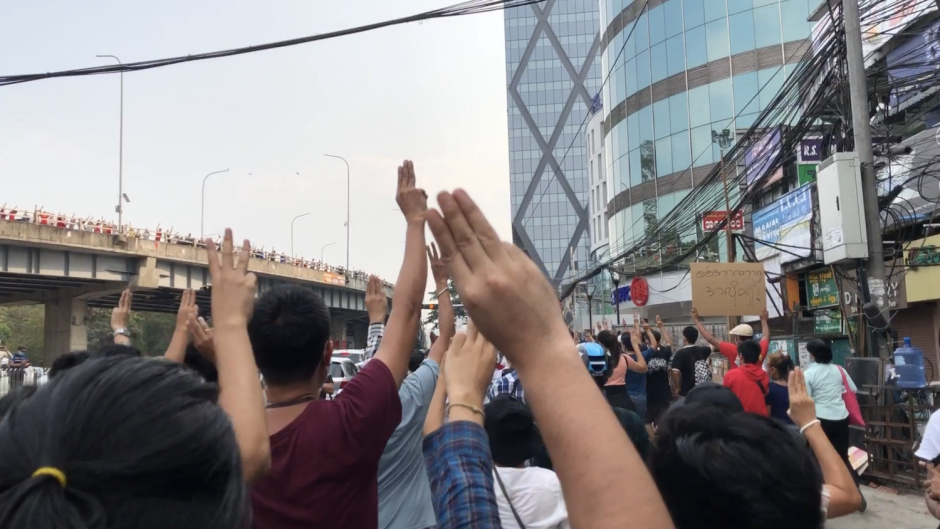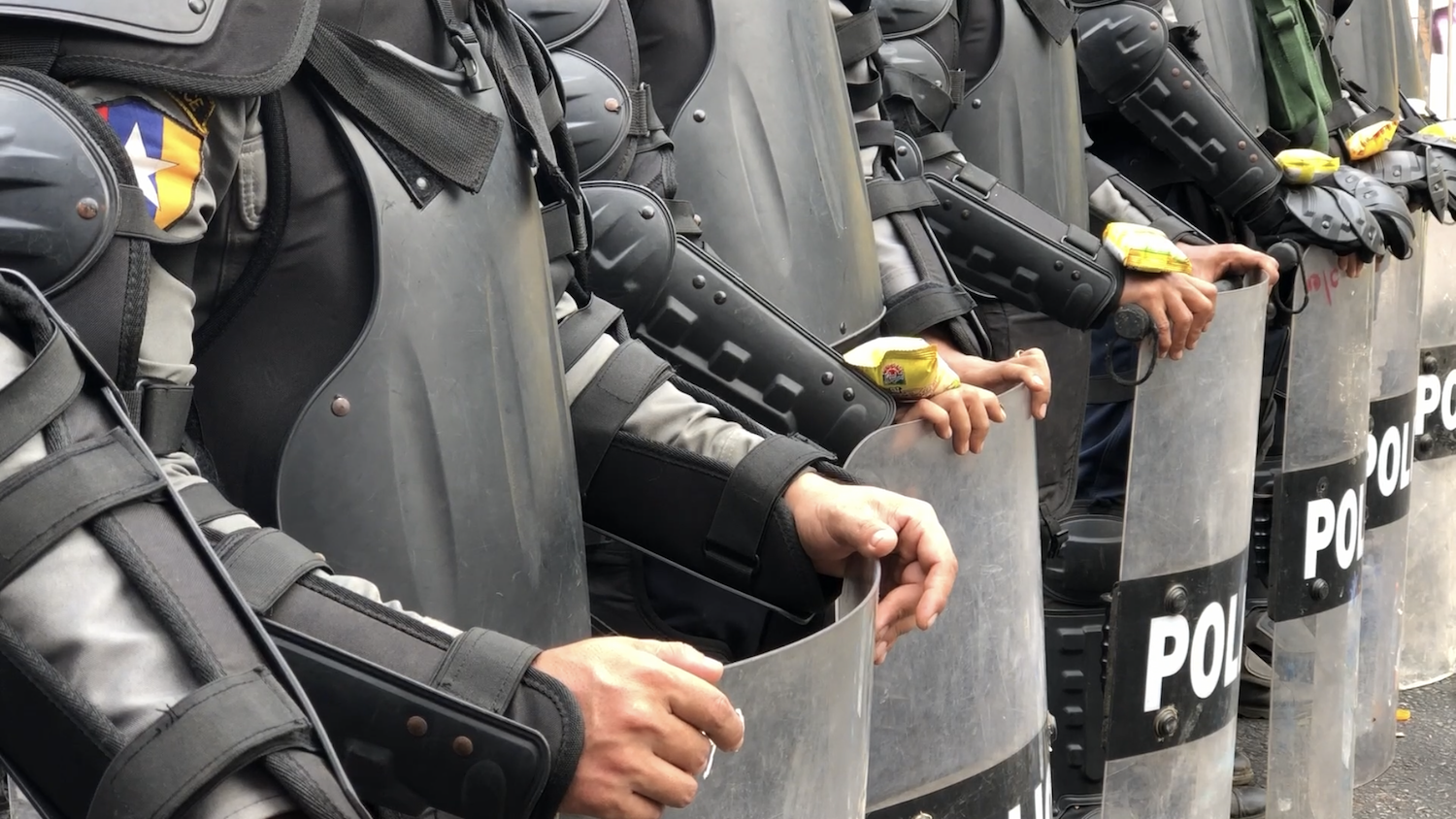Over 1500 have been killed and 11 500 people arrested by the Myanmar military junta, known as the Tatmadaw, since the coup d’état in February last year. Thousands of people have fled to neighboring countries as the civil war continues. What’s happening now in Myanmar is a document about brutal state violence against civilians, human casualties and loss of democracy.
Background
It all started during the government election in mid of november 2020. The election was a landslide victory for the Nobel peace prize laureate Aung San Suu Kyi’s party National League for Democracy (NLD), as they won the majority of the seats in the parliament. This would mean that the political power from the military junta’s party (Union Solidarity and Development Party – USDP) would decrease. The Tatmadaw/USDP began to accuse the NLD of election fraud and voter irregularities, although there is no evidence for the statement and the election was considered credible by international and domestic election observers.
After having full military rule since 1962, the authoritarian regime was dissolved in Myanmar in 2011 and the country opened up for parliamentary elections. However, the military junta still held key ministries in the government: the Ministry of Defense, the Ministry of Home Affairs, and the Ministry of Borders Affairs. When Aung San Suu Kyi became state counselor in 2016, the constitution also minimized her possibility to become president of Myanmar because of her sons being foreign citizens, although she was the de facto leader of the country.
Over its ten year run, the democratic system in Myanmar was considered fragile by international political observers. The UN also raised sanctions against Myanmar due to ethnic cleansing of Rohingyas, claims which were rejected by Aung San Suu Kyi.
The military crackdown and pro-democracy protests
Going back to the coup d’état on February 1 – Under the leadership of Tatmadaw’s Commander in Chief, Senior General Min Aung Hlaing, soldiers and police deposed democratically elected parliament members to later put them in house arrest, including Aung San Suu Kyi. As the nation was considered in a state of emergency, Min Aung Hlaing cited articles in the Burmese constitution which permit him, as the commander in chief, to have the juridical, legislative and executive functions in Myanmar. Min Aung Hlaing also stated the coup was “inevitable”.
– Until the next government is formed after the upcoming election, we need to steer the country, says Min Aung Hlaing according to Reuters.
As a rapid response to the military seizing power from the democratic regime, hundreds of thousands civilians engaged in pro-democratic demonstrations in the same month – now known as the Spring Revolution. Peaceful protests arose across the nation in so-called civil disobedience movements where, for instance, university students would organize themselves against the Tatmadaw. The Hunger Games salute (raising the index, middle and ring finger) became the power symbol for the pro-democracy movement and the resistance, and helped to create international attention on the protests.

However, the protests instantly escalated during spring as the Tatmadaw started to attack and use violence against civilians, such as tear gas and rubber bullet weapons. Civilians, including children, have been reported to be killed by soldiers from the Tatmadaw during protests. WION has reported that thousands of civil servants and workers have been sacked or been forced to quit for protesting against the coup. It has also been reported that soldiers have kidnapped and killed political opponents (such as members of NLD) or imprisoned them in the middle of the night.
Bodies burned by the Tatmadaw – UN Security Council stating it as a massacre
At least 35 people, including children and local workers for Save The Children, were reported to have been forced out of their cars by the Tatmadaw and killed in Kayah State (South Eastern region in Myanmar) on Christmas Eve of 2021. The bodies were later burned by the military junta. This is only one of many cases of the Tatmadaw’s violence against civilians. There have also been reports that the Tatmadaw has burned down houses of entire villages and unprovokedly killed civilians in the middle of the street. The UN Security Council has condemned the violence from Myanmar’s military. There have been reports of the Tatmadaw to have killed at least 110 people who had been in custody since the coup, where the bodies showed signs of torture. Relatives of the deceased have been charged a fee by the Tatmadaw to receive their loved ones’ bodies.
In Myanmar, there are around 135 distinct ethnic groups officially recognised by the Burmese government. Many regions, such as Chin State and Karen state, have formed their own local self-defense forces against the Tatmadaw, thus resulting in many battles in those regions where many are now fleeing to the borders of Mizoram region in India and Thailand to escape the violence. But for those who have managed to cross the borders, many say that they are still unsafe from the Tatmadaw. Al Jazeera has been reporting how soldiers from Tatmadaw have targeted fleeing civilians and bombarded refugee camps. The camps are also overpopulated, with resources such as food, fresh water, medicine and shelter being limited.
100 years in prison for Myanmar’s First Lady
For now, Aung San Suu Kyi has been convicted to numerous different charges (including for owning a walkie talkie), with a combined sentence of 100 years in prison. Suu Kyi is sentenced to house arrest in Myanmar’s capital, Naypyidaw. A member of Suu Kyi’s party NLD has been sentenced to death by the Tatmadaw. There are still thousands of political prisoners that have been detained since the coup d’état and not gotten a trial.
During the one year anniversary since the coup d’état, US president Joe Biden has condemned the “outrages” of the Tatmadaw and also stated a continued support for the people in Myanmar and their democratic fight. But the military junta are still status quo on their violence against the civilians in Myanmar. A year has gone, and Myanmar has been forcefully capitulated of its democracy due to the Tatmadaw’s bloody regime.

Laura Sakhong
Staff Writer at Utblick since November 2021




